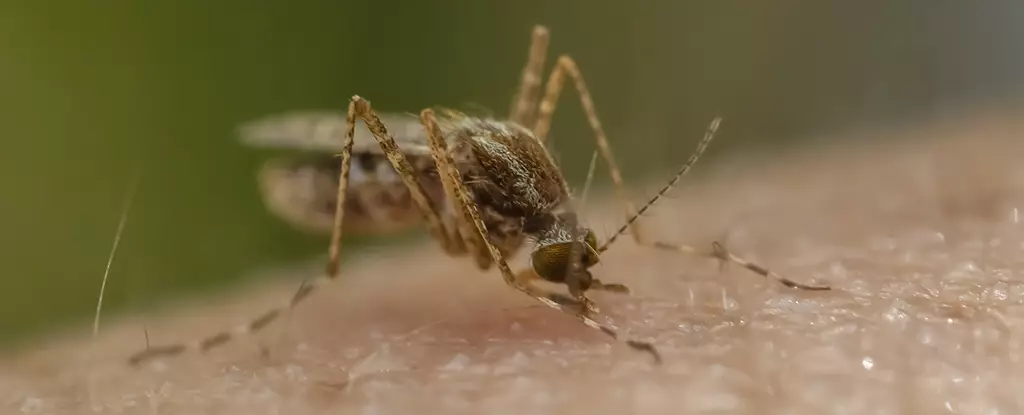Malaria remains one of the most significant global health challenges, affecting around 250 million individuals each year and resulting in hundreds of thousands of deaths, primarily in vulnerable populations. Current vaccines offer only partial protection to a considerable extent—between 50 to 77 percent of those vaccinated—while their efficacy wanes within a year. The emergence of new strategies and innovations for malaria prevention is imperative, as evidenced by promising research from Dutch universities that explores an unconventional approach: using genetically modified mosquitoes to deliver a novel vaccine.
In a recent groundbreaking study, scientists from Leiden University and Radboud University in the Netherlands have developed a second-generation vaccine aimed at enhancing protection against the Plasmodium falciparum parasite—the organism responsible for malaria in humans. This new vaccine employs a genetically weakened variant, known as GA2, of the malaria-causing parasite. Unlike previous iterations, this technology shows remarkable promise, with a significant proportion of subjects—eight out of nine young adults—achieving complete immunity against malaria compared to just one in eight with earlier vaccine formulations.
The intriguing aspect of the GA2 vaccine lies in its method of administration: via a mosquito bite. This method ensures that the modified parasite behaves similarly to its fully virulent counterpart during its initial stages of infection, giving the immune system a chance to recognize the threat before it can cause any harm. This approach, however, begs the question of feasibility—can we realistically implement the mosquito delivery system for public vaccination programs?
Meta Roestenberg, a leading vaccinologist involved in the research, elaborates on the GA2 vaccine’s mechanism of action. The genetically modified parasite is unable to complete its lifecycle and mature within the liver effectively, thereby avoiding the onset of malaria symptoms. This altered development timeline allows for a more robust immune response, as the immune system is afforded more time to identify and react to the parasite. While the original GA1 variant took approximately 24 hours to mature, GA2 extends this period to nearly an entire week.
The study revealed that the GA2 vaccine prompted a more diverse and stronger immune response, which likely accounts for its heightened effectiveness. One of the study’s crucial findings was the increased variety of immune cells elicited in response to the vaccine, hinting at the method’s potential for refinement and improvement in future vaccine development.
Another significant consideration in vaccine development is safety. The researchers reported that side effects from the new vaccine were relatively minor. Participants experienced only minor reactions such as redness and itchiness around the bite site, creating a favorable profile for GA2 compared to other more invasive vaccines or medications. Following the completion of the study, subjects were also placed on a course of anti-malarial drugs as a precautionary measure, ensuring an added layer of safety following their exposure to the weakened parasite.
While this research represents a major step forward, it also reflects the complex battle against malaria. Innovations such as the GA2 vaccine must be integrated into broader malaria control strategies that involve preventative measures, treatment, and education. Current vaccine options leave much to be desired, illustrating the ongoing need for research and development in this field.
Although the use of genetically engineered mosquitoes for the delivery of vaccines presents distinct challenges, the insights garnered from this study can inform future research efforts. The ability to induce a strong, protective immune response against malaria could ultimately contribute to a more significant reduction in transmission rates and mortality across high-risk populations.
The promise of the GA2 malaria vaccine exemplifies how innovative approaches, derived from unconventional methodologies, can pave the way toward more effective prevention strategies. As researchers continue to unravel the complexities of malaria and develop new solutions, the hope remains that new vaccines might ultimately fulfill the need for more comprehensive protection against this deadly disease.



Leave a Reply